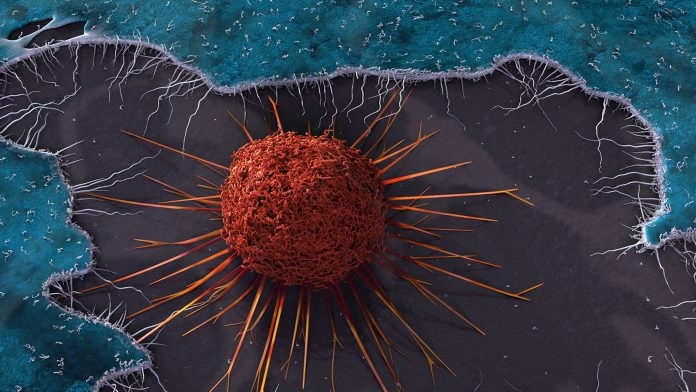
New evidence shows that germline-somatic associations can affect cancer development. In a large-scale analysis of data from the Dana-Farber Cancer Institute across 11 cancer types, researchers found that certain variants were associated with a decreased risk of somatic mutations, while others were linked to a higher risk.
This study appeared in Cancer Research and the senior author was Peter Kraft of the Harvard T.H. Chan School of Public Health.
Somatic mutations can drive cancer development and affect patient responses to treatment. There is also growing evidence such mutations can be influenced by the germline genetic background. However, the mechanisms that drive these germline-somatic associations are still unclear.
This team started with the premise that “…germline variants can influence somatic mutations in a nearby cancer gene (“local impact”) or a set of recurrently mutated cancer genes across the genome (“global impact”) through their regulatory effect on gene expression.”
To test this hypothesis, tumor targeted sequencing data from 12,413 patients across 11 cancer types in the Dana-Farber Profile cohort were integrated with germline cancer gene expression quantitative trait loci (eQTL) from the Genotype-Tissue Expression Project.
The researchers found that variants that upregulate ATM expression were associated with a decreased risk of somatic ATM mutations across 8 cancer types. GLI2, WRN, and CBFB eQTL were associated with global tumor mutational burden of cancer genes in ovarian cancer, glioma, and esophagogastric carcinoma, respectively. An EPHA5 eQTL was associated with mutations in cancer genes specific to colorectal cancer, and eQTL related to expression of APC, WRN, GLI1, FANCA, and TP53 were associated with mutations in genes specific to endometrial cancer.
The Dana-Farber Profile project, initiated in 2011, is a cohort study of unselected cancer patients who presented at the Dana-Farber Cancer Institute, Brigham and Women’s Hospital, or Boston Children’s Hospital. They received genomic profiling and their tumor specimens, mainly formalin-fixed paraffin-embedded tissues, were retrieved from all consented patients for targeted sequencing. Comprehensive clinical and pathologic data were collected along with the genomic data.
All tumor samples were sequenced on Dana Farber’s OncoPanel, a targeted sequencing platform designed for detecting somatic variations in a panel of actionable cancer genes. There are three versions of the panel targeting the exon and/or intron regions of 304, 326, and 447 genes, respectively; each patient in the cohort was sequenced on one of the panels.
In conclusion, the study authors write, “We systematically investigated the impacts of 28,486 germline cancer gene eQTL on somatic mutations in 114 cancer genes among 12,413 patients across 11 cancer types. Our results indicate that germline variants that regulate the expression of cancer genes also influence local and global tumor mutations.”
These findings, they say, provide further evidence for the important role of gene expression regulation in germline-somatic associations and open avenues for future research on the molecular mechanisms underlying these associations that confer cancer risk and sensitize cancer to immunotherapy.













